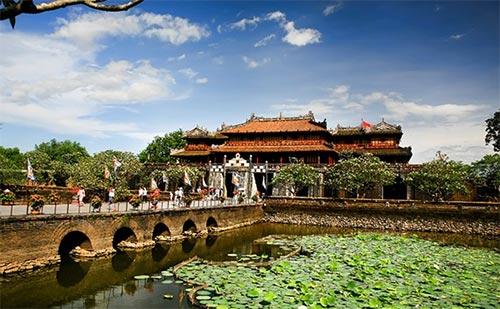A virtual space introducing tourist destinations of the central province of Thua Thien-Hue was launched recently, aiming to optimise digital transformation to boost the industry’s recovery from the pandemic and encourage economic growth. According to the Director of the provincial Department of Tourism, Tran Huu Thuy Giang, this is a step for the province to catch up with the fourth industrial revolution. It will also connect Thua Thien-Hue with the International Telecommunication Union (ITU) to promote its tourism products, services, and destinations to foreign visitors while helping Vietnamese firms partner with leading telecommunication and IT companies.
As per a news report, Giang said the province hopes to organise the space annually, providing a chance for localities across the province and local travel firms to connect with their customers. Visitors can access the Thua Thien-Hue virtual tourism space at the official website and portal for images of destinations, festivals, and specialities as well as tourism activities of the province in a 3D format. The department and its technology partner have supported travel firms to register to join the virtual tourism space and interact with customers. So far, more than 90 localities and businesses have registered to take part in the space. Officials will continue to develop the space into a tourism platform that enables visitors to book tours and hotels for their trips.
Vietnam has been taking measures to digitally develop tourism, including rural tourism. The growth of rural tourism will expand the sector and promote sustainable new-style rural area building. As OpenGov Asia had reported, increasing rural tourism through the National Target Programme on New-style Rural Development will create jobs, raise incomes, and promote a rural economic structure shift through digital transformation. It will also help preserve traditional cultural values and protect the environment.

The nation currently has three types of rural tourism: community-based tourism, agricultural tourism, and ecotourism. The country has about 365 rural tourist spots and more than 2,000 traditional craft villages with the potential for tourism. Digital transformation in rural tourism will help attract more visitors, assist tourists to prepare their trips easily, provide better services, and better understand customer behaviours.
With the government’s investments in digital transformation, Vietnam’s digital economy has been growing at the fastest pace in ASEAN, about 38% annually compared to the region’s average of 33% since 2015. The country expects the digital economy will make up 20% of its GDP and at least 10% in each sector. It is at the forefront of driving change and seizing opportunities to thrive based on digital transformation in a post-pandemic future.
Last year, a study surveyed about 16,700 digital consumers and more than 20 C-level employees in six Southeast Asian countries, including 3,579 survey participants from Vietnam. The report described Southeast Asia as a leader of digital transformation in the Asia-Pacific region and Vietnam as one of the best performers. In Vietnam, seven out of ten consumers have digital access.




